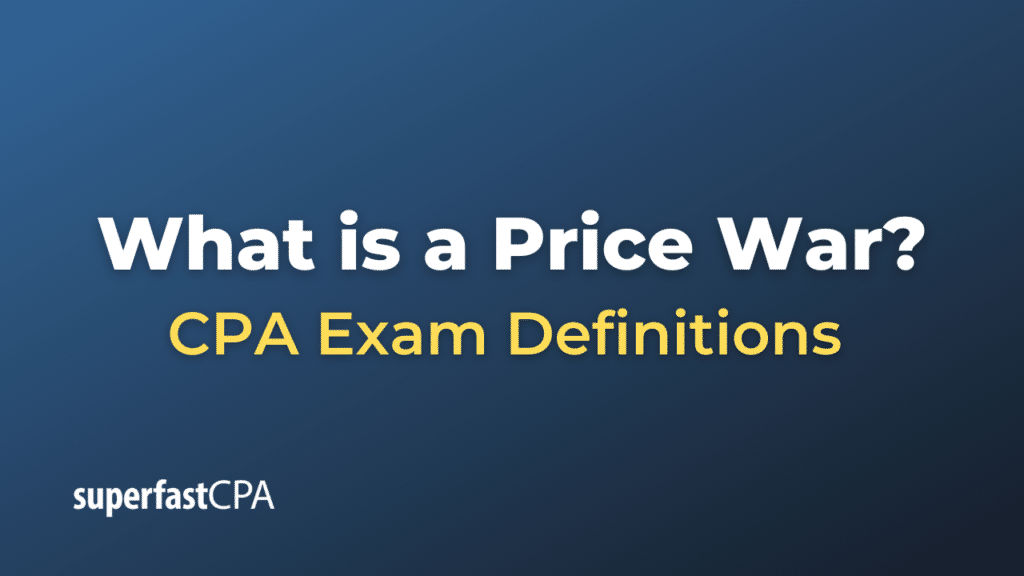Price War
A price war refers to a competitive situation where one company lowers its prices, causing other companies in the same market to also reduce their prices in order to maintain their market share. This situation can occur in virtually any industry and often leads to significantly decreased prices for consumers.
Price wars can start for various reasons, including:
- A new competitor entering the market.
- An existing company trying to gain a larger market share.
- A response to a decrease in consumer demand.
- A reaction to oversupply in the market.
While a price war can benefit consumers in the short term due to lower prices, it can also have negative effects. For businesses, extended periods of reduced prices can squeeze profit margins and potentially lead to losses. For consumers, if a price war forces some companies out of business, it could reduce competition in the long term, which might lead to higher prices.
Companies participating in a price war must ensure they can sustain the lower prices without suffering excessive losses. Ideally, they will have a cost advantage, a differentiation strategy, or a plan to make up for losses through other areas of the business (e.g., higher volume sales, increased market share, or sales of other high-margin products or services).
Example of a Price War
Let’s consider a scenario in the retail industry to illustrate the concept of a price war.
Imagine there are two major supermarket chains in a city: Supermarket A and Supermarket B. Both are similar in size and product offerings. To gain a competitive edge, Supermarket A decides to lower its prices significantly on a range of products hoping to attract more customers and increase its market share.
In response, Supermarket B, not wanting to lose its customers to Supermarket A, also decides to slash its prices. This instigates a price war between the two supermarkets, with both continuously lowering their prices to try and attract customers.
While consumers enjoy the benefits of reduced prices in the short term, both supermarkets experience thinner profit margins due to the reduced prices. If the price war continues for an extended period, it could start hurting the profitability of both supermarkets.
This is a simple example, but it illustrates how price wars can start and the impact they can have on the businesses involved. It also demonstrates why companies must consider their pricing strategies carefully, as aggressive price competition can have significant financial consequences.













